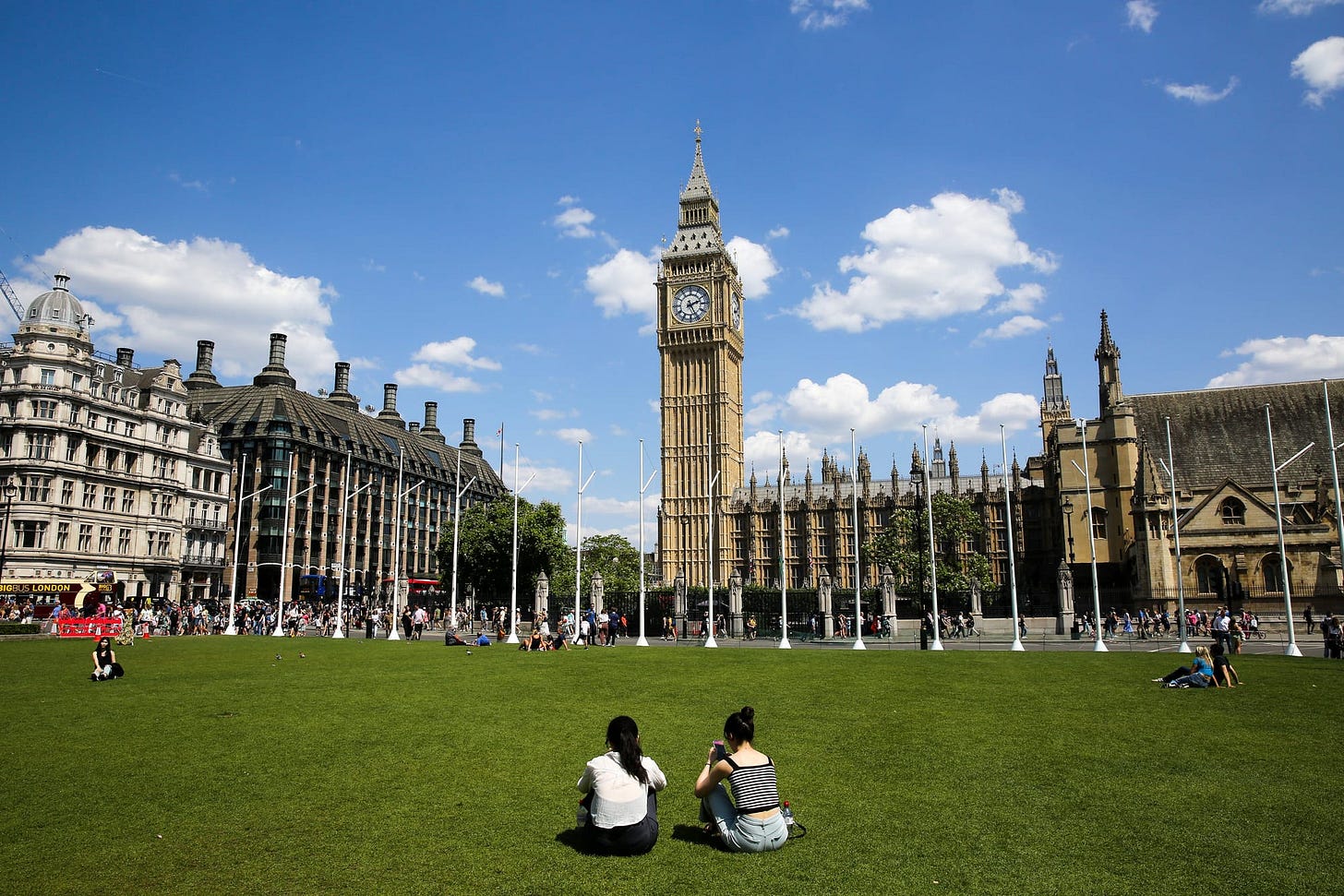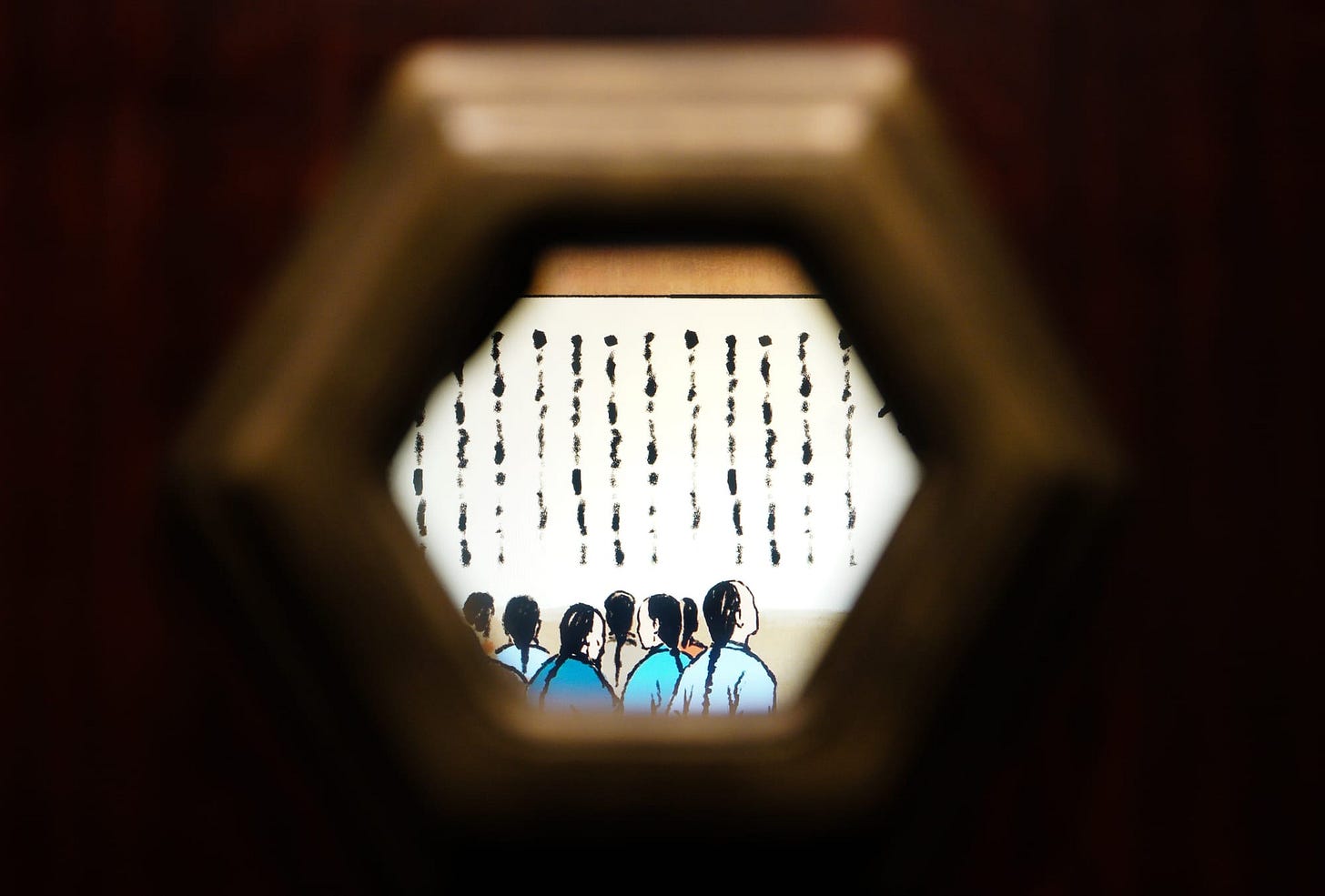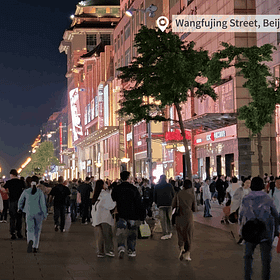The “Future-Defining” Exam in China: Why The Gaokao Embodies China's Millennia-Old Pursuit of Fairness?
To understand this uniquely Chinese phenomenon, a historical perspective is essential.
Editors' Note: The 2025 Gaokao, China’s national college entrance examination, started on June 7 and runs through June 8. For many Chinese students, this exam is seen as one of the most important opportunities in their lives to pursue their dreams. Some even joke that Gaokao decides your future—a claim that may sound exaggerated, but powerfully reflects the weight Chinese society places on this test.
How can a single exam determine one’s life? And how is the Chinese government reforming this system to better align with the country’s evolving development goals?
To understand this uniquely Chinese phenomenon, a historical perspective is essential. The following article offers a fresh lens on the Gaokao’s enduring significance and the reforms reshaping it today. This article is composed of paragraphs from Global Times’ editorial.
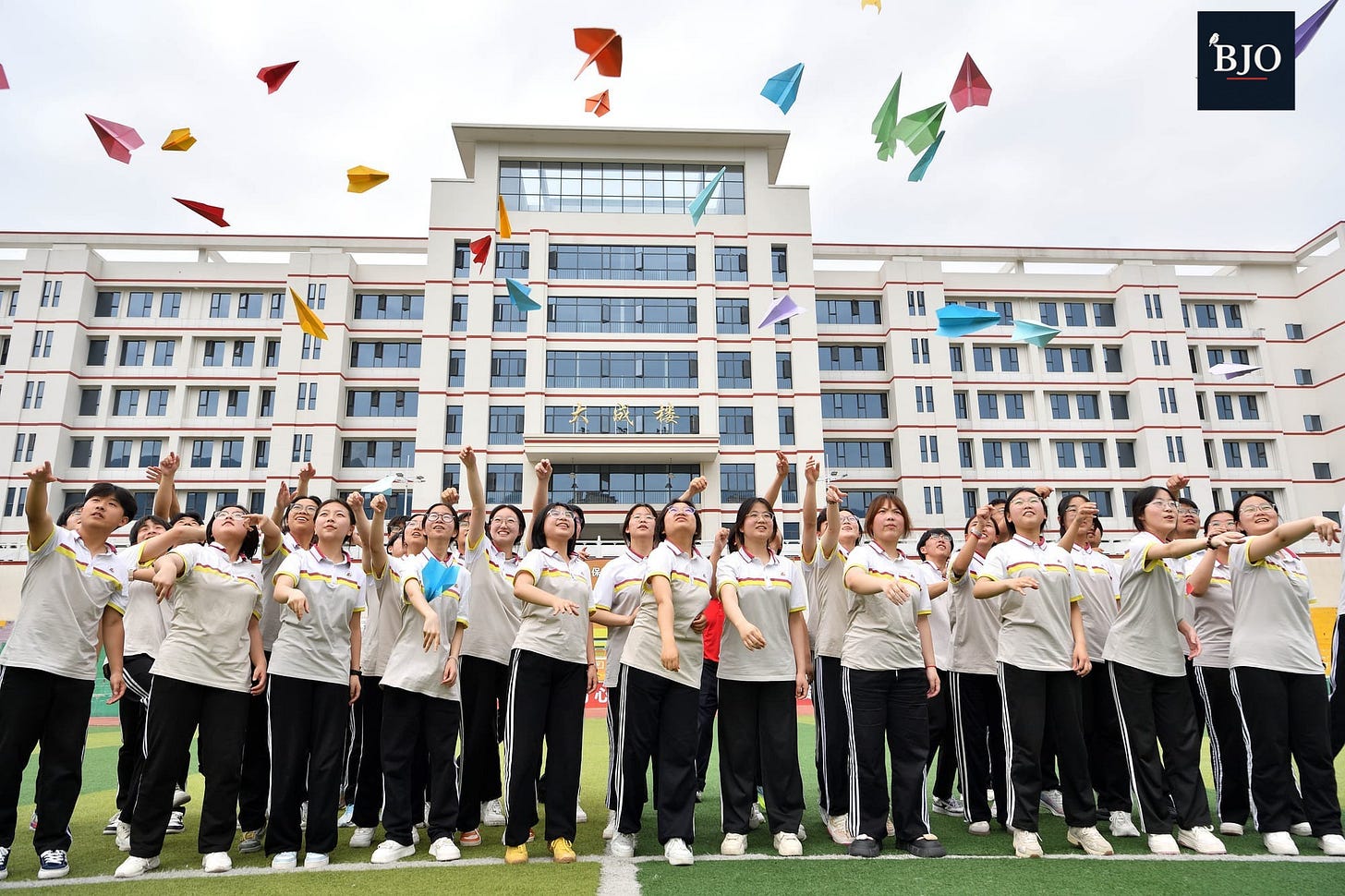
In 1853, the British public was outraged by the incompetence and corruption displayed by the British army and government during the Crimean War. Under growing public pressure, the Palmerston Cabinet was forced to pursue reforms. Palmerston realized that improving government efficiency and integrity required a fundamental change in the way officials were recruited—nepotism within party ranks had to be curbed. In 1854, Stafford Northcote and Charles Trevelyan, after conducting extensive research, proposed a civil service reform plan—the famous Northcote-Trevelyan Report. The report, widely regarded as the foundation of the modern British civil service, emphasized open competition, equal opportunity, and merit-based selection.
This system, which American writer John Gunther once described as “the incorruptible spinal column of England,” remains a pillar of governance not only in the UK but also in many Western nations that followed its example.
Looking back, many historians trace the inspiration for Britain’s civil service system to China’s ancient imperial examination system (“科举” kē jŭ). While the Opium War in the mid-19th century opened China’s doors to the world, it also allowed Western observers to examine how this ancient empire functioned internally. They were struck by the fact that official appointments in China were not determined by aristocratic privilege or political spoils, as in Britain, but by a rigorous system of examinations. Intellectuals widely disseminated these observations and became a significant reference in the West’s own reform movements.
Keju: A System that Lasted for 13 Centuries
China's system for selecting government officials has deep roots, tracing back to the 2nd century BCE (Han Dynasty). Yet, the mature imperial examination system was not fully developed until the 7th century, during China’s golden age under the Tang and Song Dynasties. At this time, the system established a three-tier exam structure (local, central, imperial), expanded its subjects to include law, public administration, mathematics, Confucian classics, and literary composition, and even developed a military examination focused on skills such as horseback riding, archery, and weightlifting to recruit military officers.
More than a means of selecting talent, the system served as a tool for ensuring social fairness and stability, lending rationality and legitimacy to imperial rule. To safeguard fairness, the government introduced strict measures: test centers were heavily guarded, and candidates were required for checks before entry to prevent cheating.
By the 10th century (Song Dynasty), China had implemented the “anonymity system” (糊名法,hú míng fǎ, concealing names on exam papers), which later evolved into the “copyist system” (誊录,téng lù, the test content would be transcribed by officials to prevent recognizing candidates’ handwriting). These meticulous designs helped ensure that all candidates, regardless of background, had a fair chance to advance, thus facilitating social mobility.
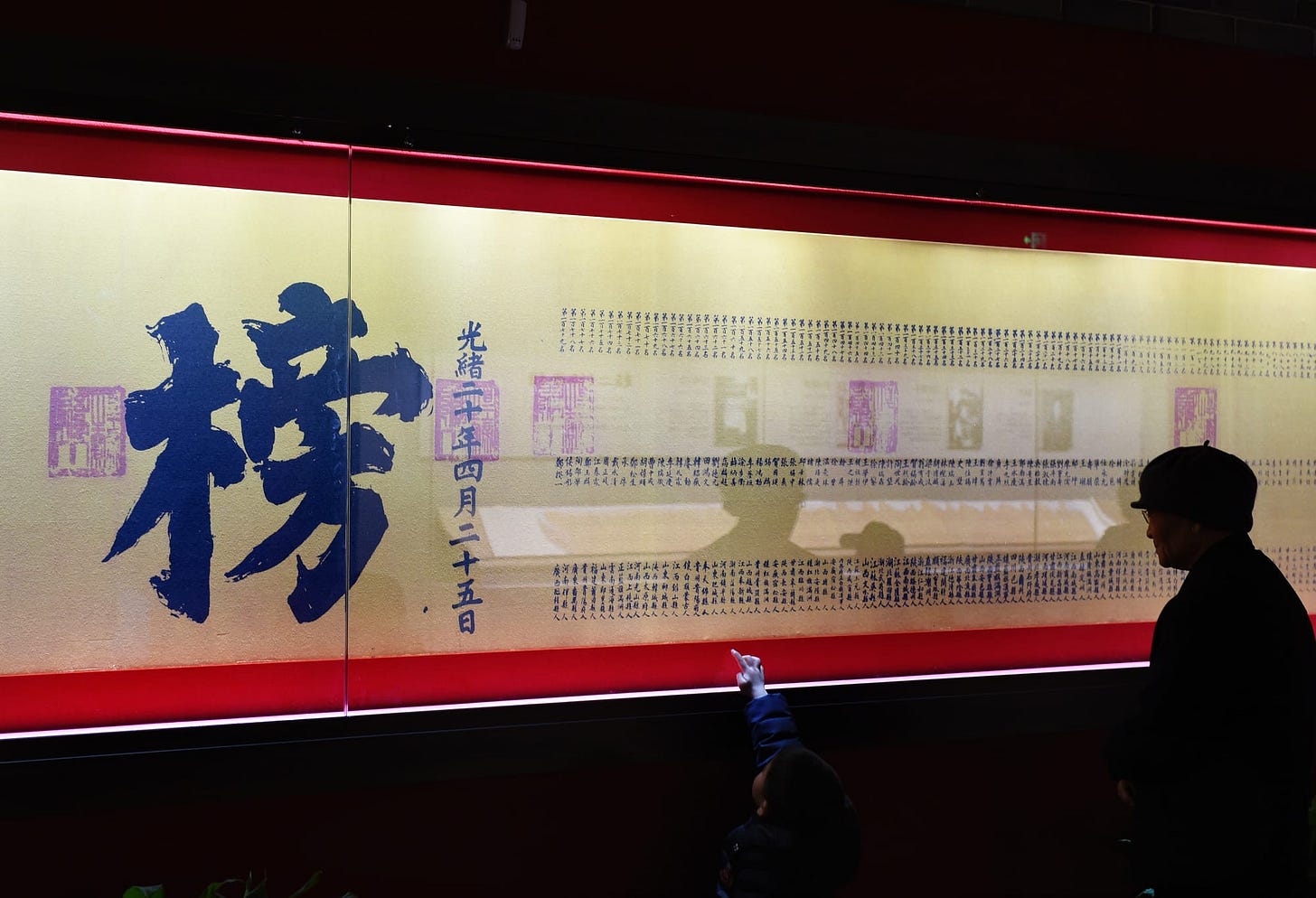
Echo of Keju: Pursuit of Fairness Ever After
After the founding of the People's Republic of China in 1949, the national college entrance examination (Gaokao) system was re-established alongside the new regime. However, it differed significantly from the imperial civil examination system in several ways:
Its purpose was not to sustain a feudal regime, but to support national reconstruction and modern development.
The content of the exams became modernized, focusing not on Confucian classics or moral virtues, but on subjects such as mathematics, physics, chemistry, Chinese, foreign languages, geography, and other sciences and humanities.
The primary function of Gaokao was to select students for admission into higher education institutions, not to recruit civil servants.
As such, Gaokao belongs to the educational system rather than the administrative system. Based on these key features, a modern examination-based selection system—with Gaokao at its core—gradually took shape in China.
Gaokao: Never-ending Journey for Fairness and Progress
In the coming days, China will enter the time of the gaokao, or the national college entrance examinations. This year, 13.35 million candidates are expected to step into examination halls across the country, picking up their pens to seek answers for their futures. Chinese society is both "quieting down" and "mobilizing" to provide thoughtful, heartfelt support for the candidates and to ensure fairness and integrity in every aspect of the process.
Over the past several decades, the significance of Gaokao has long extended far beyond being a mere college entrance exam. It resonates with China's progress and development, embodying the dreams and hopes of countless young people. The resumption of Gaokao in 1977 after a ten-year hiatus marked an important turning point in history. It built a pathway through which individuals could change their lives by acquiring knowledge and committing to learning. One test paper and one pen have provided generations of students with the opportunity to enter a broader world. Through standardized exams, strict confidentiality procedures, and open and transparent admissions processes, Gaokao safeguards educational fairness. This sense of fairness is particularly distinctive on a global scale. The vast majority of people believe that Gaokao serves as an important line of defense for social equity and justice, and its credibility has been earned through decades of unwavering commitment to upholding rules and adhering to procedures.
The 2025 gaokao continues to move in the direction of promoting equitable allocation of educational resources. The Chinese Ministry of Education is further implementing national enrollment coordination programs that support central and western regions, as well as special admission plans for rural students. Leading universities are moderately increasing their enrollment quotas in populous provinces such as Henan and Sichuan, as well as in western provinces. The publicly funded teacher training program for graduates from formerly impoverished counties has been expanded. The 2025 gaokao also includes specially prepared Braille test papers for 16 blind candidates from 12 provinces. The gaokao system continues to improve by listening to public voices and responding to the demands of the times. It is precisely thanks to this constantly evolving selection mechanism that millions of individuals have been able to transform their lives.
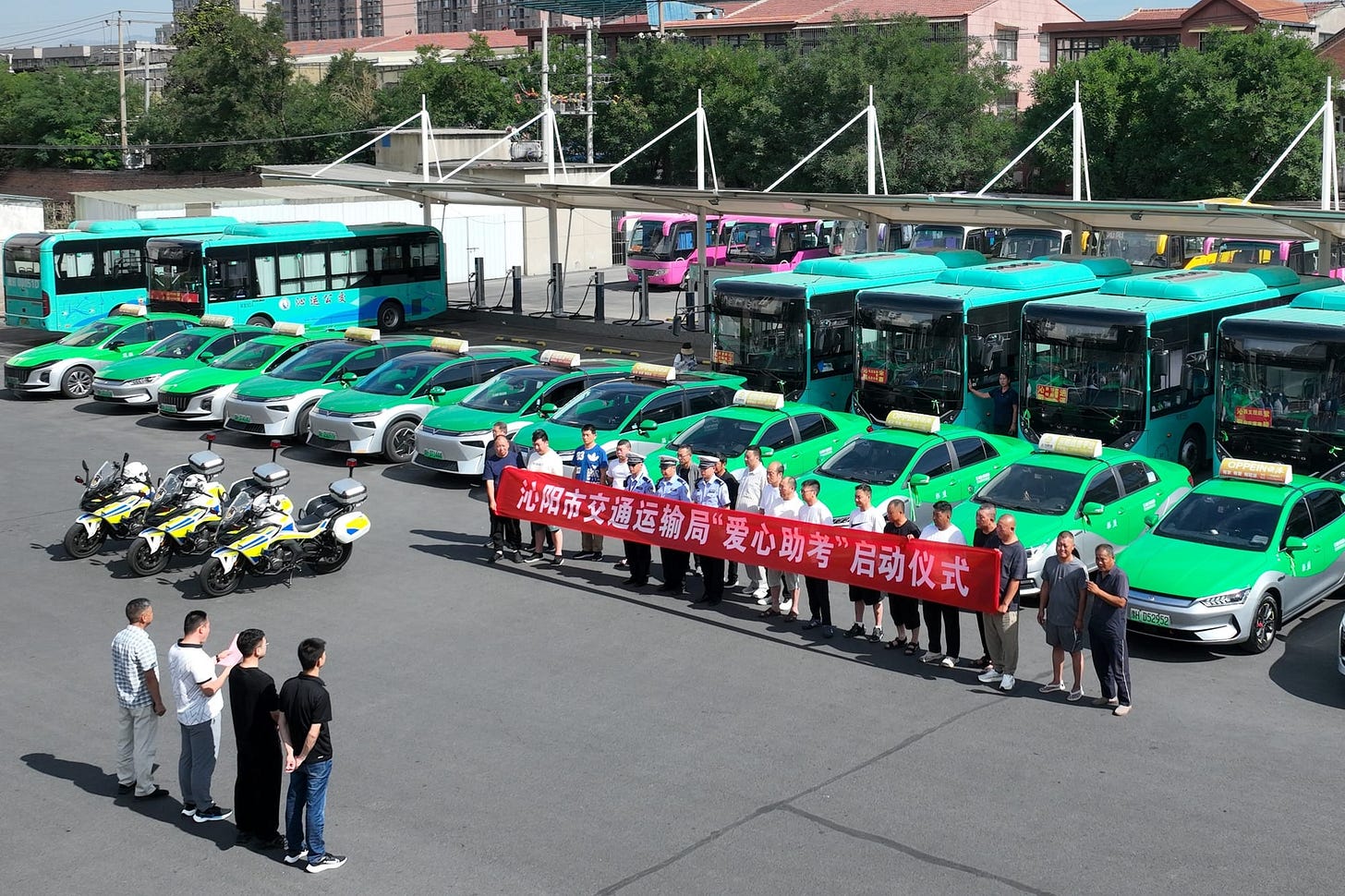
The vitality of Gaokao lies in its deep roots in China's specific realities and its ability to evolve with changing national circumstances and public needs. A major highlight of the 2025 gaokao is the addition of 29 new undergraduate majors introduced by the Chinese Ministry of Education. These include low-altitude technology and engineering, carbon neutrality science and engineering, medical devices and equipment engineering, digital theater, and AI education, among others. These new programs place greater emphasis on interdisciplinary integration and alignment with emerging fields and cutting-edge technologies. They reflect the higher education sector's swift response to national strategies, market demands, and technological advancement, aimed at meeting the urgent need for versatile, cross-disciplinary talent in the digital age.
Through the Lens of Gaokao: The Pulse of A Dynamic China
Gaokao is not just an exam; it reflects the temperature and value orientation of a society. In the early summer of 2025, we find that amid the intense preparation process, there is an increasing emphasis on psychological care for gaokao candidates from families, schools, and society as a whole. Many schools have launched distinctive pre-exam mobilization activities, replacing the traditional "pre-exam mobilization ceremony" with a "heartwarming last lesson." Some taxi companies in several cities have initiated a "no disturbance during gaokao" campaign, advising drivers not to play audio or engage in conversation, thereby providing candidates with a quiet space in the vehicle. The shift from "grand displays" to "silent guardianship" reflects the rationality and maturity of Chinese society.
You may also like to:
See How Chinese People Spend Their "May Day" Holiday
During this May Day holiday, China's consumer market unleashed renewed and robust vitality. Data from the Ministry of Transport shows that, from May 1 to 5, the total cross-regional passenger traffic nationwide increased by 8 percent year-on-year. Passenger volumes by rail, road, water, and air also saw a marked rise. According to the Ministry of Commer…
From "thousands of thousands vying for a narrow pass" to "a multi-faceted overpass for talent development," Gaokao has continuously evolved with the times, yet its significance in personal growth remains unchanged, as does the core spirit of perseverance it embodies. As we marvel at achievements like the Chang'e lunar missions and the Jiaolong deep-sea submersible, we must recognize that behind these accomplishments are countless young students stepping from one classroom to another, crossing the bridge of Gaokao to move step by step toward the forefront of the nation's technology. Their experiences powerfully demonstrate that in China, as long as you are willing to work hard, strive, and have talent, the examination room will provide you with a fair opportunity, and the country will offer you a vast stage. We wish every candidate the best in showcasing their abilities, and may the fair sunlight illuminate the path of every dreamer.
This article is composed of paragraphs from Global Times’ editorial and other China's mainstream media. The views don't necessarily reflect those of BeijingOpinion.



